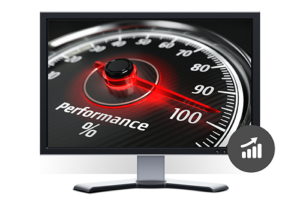AV-Comparatives Explains, Why Users Should Never Have Multiple Antivirus Programs on a Computer

AV-Comparatives says it is counterproductive to use multiple antivirus programs.

Logo AV-Comparatives
Independent test institute AV-Comparatives says it is counterproductive to use multiple antivirus programs.
But when it comes to antivirus, it’s more a case of too many cooks in the kitchen.
We often hear from users who assumed that installing multiple antivirus solutions on their computer would improve their chances of detecting any malicious files before they do any damage. However, while it is a good idea to have multiple complimentary security products in place if users take security seriously, this doesn’t extend to multiple full antivirus solutions. Having several antivirus products in place won’t do much to improve the machine’s security – in fact it’s likely to cause some serious problems.
Competing for computer power
Conducting full system scans can be a resource-heavy process at the best of time – indeed system performance during scanning is one of our main testing criteria. Running two antivirus products at the same time means twice the drain on the computer’s resources. Even if each solution boasts a low level of performance impact, together they will almost certainly slow the machine down and possibly cause other issues. In fact, the solutions might use even more resources than normal as they compete with each other.
Butting heads
The impact is much worse if an actual threat is found on the machine. Each antivirus will attempt to go through its own processes to identify and quarantine the suspected malicious file- and they’ll both do it at the same time. It is like two enthusiastic dogs chasing the same rubber ball and then, when they have caught up with it, butting heads and fighting over it.
This will result in a major drain on the machine’s resources and can cause erratic behaviour including freezing or even full-on system crashes. In some cases, competing products can get caught in an endless loop. One antivirus will copy a file to a temporary folder for scanning, and another solution will notice the activity and be prompted to make its own copy. The first product may then notice this and make another copy… and so on, until the system runs out of memory.
There can be only one: what to do if you have multiple antivirus products
If users have more than one solution on their machine, they should look at cutting back to a single choice before they run into any serious issues. It’s worth noting that this generally only applies to software that conducts scans of the entire operating system. More specific solutions like email scanners are less likely to be an issue and will probably be able to coexist without any problems. Nevertheless, it’s worth going through any security tools on the system to make sure they are compatible.
When deciding which solution to keep, users should take the opportunity to make sure that their products are working correctly to make sure it’s a fair comparison. Check out this post for some advice on making sure that the antivirus is functioning properly.
Users should be particularly on the lookout for the possibility of one of their antiviruses actually being a rogue programme. These rogues appear to be genuine, but it’s only surface deep. Behind the scenes they will be conducting malicious activity such as installing keyloggers or backdoor access to the machine.
When it is sure all the antiviruses on the machine are genuine and working as they should be, it’s time to pick a winner. Users who are struggling to decide, we can help. Users can take a look at our tests for some insight into which antivirus product is the best one for their needs.
About AV-Comparatives:
AV-Comparatives is an independent organisation offering systematic testing to examine the efficacy of security software products and mobile security solutions. Using one of the largest sample collection systems worldwide, it has created a real-world environment for truly accurate testing.
AV-Comparatives offers freely accessible av-test results to individuals, news organisations and scientific institutions. Certification by AV-Comparatives provides a globally recognised official seal of approval for software performance.
Peter Stelzhammer
AV-Comparatives
+43 720 115542
media@av-comparatives.org
Visit us on social media:
Facebook
Twitter
LinkedIn
Legal Disclaimer:
EIN Presswire provides this news content "as is" without warranty of any kind. We do not accept any responsibility or liability for the accuracy, content, images, videos, licenses, completeness, legality, or reliability of the information contained in this article. If you have any complaints or copyright issues related to this article, kindly contact the author above.

